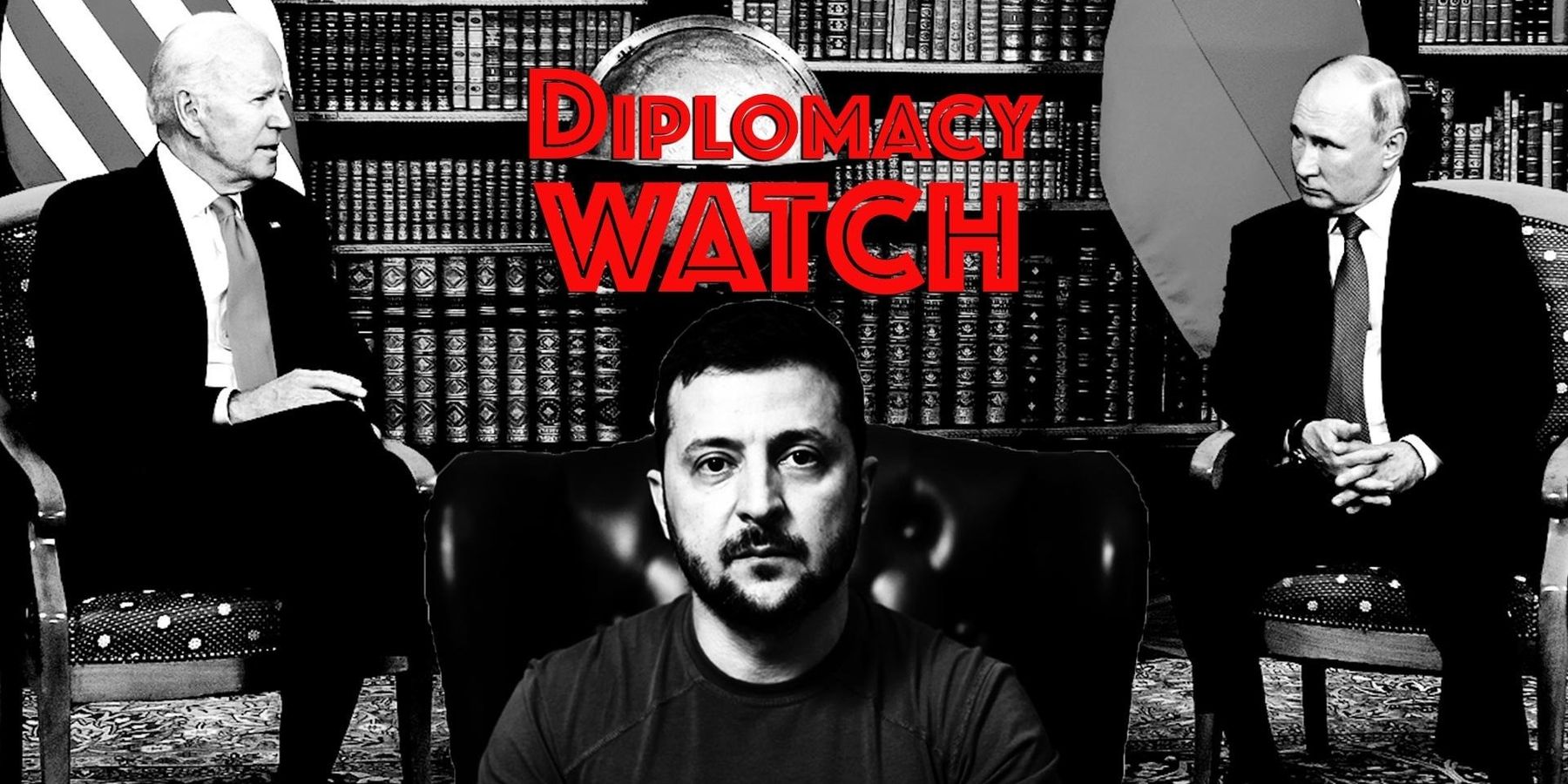Ukrainian president Volodymyr Zelenskyy’s recently unveiled his “victory plan,” which is meant to give Western leaders a strategy for how Ukraine can defeat Russia and defend against Moscow moving forward.
While U.S. officials were reportedly “unimpressed” with the proposal when Zelenskyy presented it to the Biden administration last month, the Ukrainian president presented details publicly for the first time on Thursday at an EU summit in Brussels. At the top of Zelenskyy’s plan is an unconditional invitation to join NATO.
“It is important for us that we are strengthened, and the first step should be an invitation,” Zelenskyy said. Zelenskyy’s plan also calls for Western assistance to strengthen Ukrainian defenses, including the allowance for Ukraine to use Western-supplied long-range missiles deep into Russian territory. The missile-use request is not new, and the United States and United Kingdom have been previously reluctant to provide this permission.
Zelenskyy is also asking the EU and the U.S. to protect Ukraine’s natural resources and to position Ukrainian troops in Europe, with the goal of replacing the presence of some U.S. troops on the continent, which have been there since the end of World War II.
Zelenskyy didn’t offer much by way of pathways to peace or ceasefire and even said the plan could go into place without Russian cooperation at all. And it has so far had a lukewarm reception from Western leadership. “We are not at the point right now where the alliance is talking about issuing an invitation in the short term,” said U.S. Ambassador to NATO Jullianne Smith, referring to formally inviting Ukraine to join the alliance. She added however that, “as always, we will continue conversations with our friends in Ukraine to talk to them about ways in which they can continue to move closer to this Alliance.” NATO Secretary General Mark Rutte did not outright accept the plan either, saying that he would welcome the day that Ukraine joins the alliance, but that “doesn’t mean that I here can say I support the whole plan.”
Meanwhile, President Biden took what’s been billed as a “farewell trip” to Berlin on Thursday to make up, in part, for the Ramstein meeting that was canceled due to last week’s hurricane in Florida. Despite the meeting’s cancellation, Biden still pledged an additional $425 million in defense aid to Kyiv as support for a continued war is shifting both among Western leaders, and members of the Ukrainian military and public.
“Biden’s trip to Germany represents a last-ditch effort to corral flagging trans-Atlantic support for Ukraine,” said Mark Episkopos, Eurasia research fellow at the Quincy Institute. “But there is every indication that European partners will continue slowly peeling away in the absence of a viable strategy, articulated and pursued by the White House, for bringing the war to a close on the best possible terms for Ukraine and the West.”
Other Ukraine war news this week:
Nearly half of the land taken by Ukraine in the Kursk region of Russia has been retaken, according to The Telegraph. Two months ago Ukraine captured the lightly guarded territory just over the border and Putin has vowed to retake all of it.
Reuters is reporting that Zelenskyy has called on his Western allies to further sanction North Korea following reports of Pyongyang’s direct involvement in the war. According to Ukrainian intelligence, the Kremlin is preparing to receive 10,000 soldiers from North Korea, lining up with earlier reports of North Korea assisting Moscow both with soldiers and advisers, as well as with weapons.
Levadne, in the southern Zaporizhzhya region of Ukraine, has been taken by Russian troops. The Associated Press reports that the city was retaken on Monday, which adds to the increasing number of cities which Russia has taken or retaken in recent months.
From State Department Briefing on Oct. 15
State Department spokesperson Matthew Miller was asked about reports that North Korean troops were assisting Russia with its war against Ukraine. Miller said that if the reports were true, “it would also indicate a new level of desperation by Russia, as it continues to suffer significant casualties on the battlefield.”
When asked about a senior Russian official’s claim that the U.S. would face a “head-on collision with a nuclear power” if American weapons are used deep into Russian territory, Miller said, “I think it’s inappropriate for Russia to continue to make these kinds of statements, as we’ve said for some time.”
From State Department briefing on Oct. 16
Asked about Zelensky’s victory plan, Miller said, “I’m not going to get into the various details other than to say that we continue to engage with the government of Ukraine about that plan.”
Miller also said he was confident France and Germany would continue military support for Ukraine when asked about reports that they would scale down.
When asked again about the cooperation between Russia and North Korea, he said that the administration “continues to have great concerns about the growing security relationship between Russia and North Korea.”
- What a Russian 'victory' would actually look like ›
- Europeans' last ditch clutch at Ukrainian victory ›

















